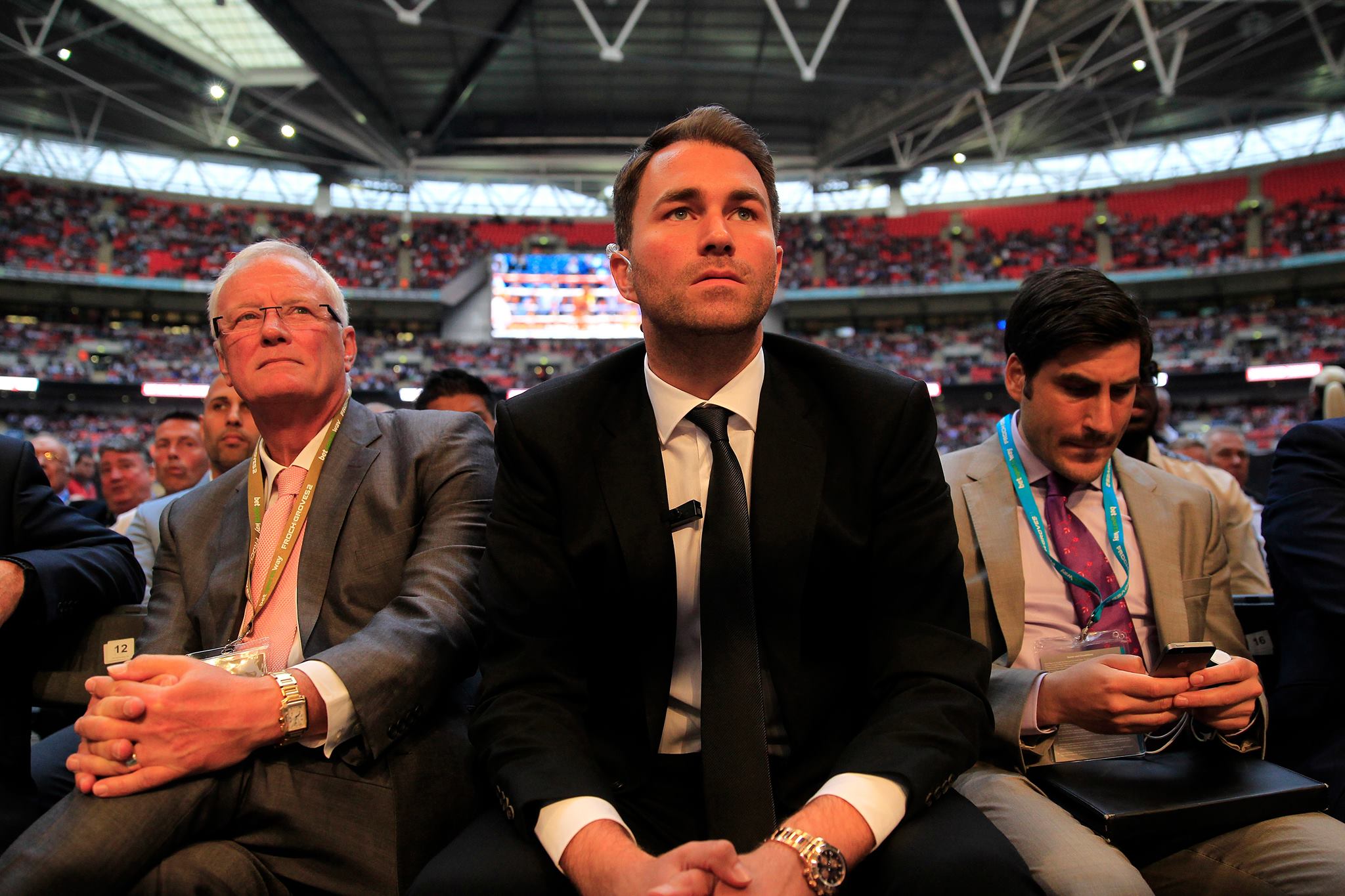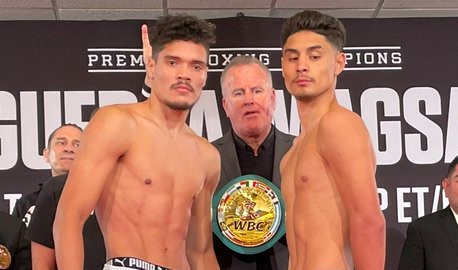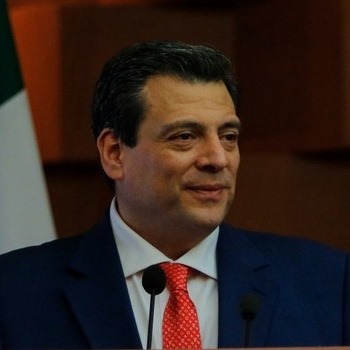If You Mess with the Big Dogs You are Going to Get Bit
By Bryanna Fissori
Legal Analyst
On May 17 the Ultimate Fighting Championship (UFC) filed a lawsuit against Without Limits MMA, a gym in Batesville, AR as well as owner Matt Sellers as the principal defendant. The gym allegedly broadcast UFC 126 “Silva v Belfort” without obtaining UFC permission. The complaint was filed in the U.S. District Court for the Eastern District of Arkansas. Sellers was served the summons just days ago on June 21 and will have the standard 21 days to respond.
The UFC is contending that the defendant violated several statutes in copyright infringement, each bearing a different amount in statutory penalties.
47 U.S.C. §605 (a) “prohibits the unauthorized reception and publication or use of communications such as the transmission for which plaintiff had the distribution rights thereto.”
Maximum $110,000
47 U.S.C. §553 “prohibits the unauthorized reception, interception and exhibition of any communications service offered over a cable system such as the transmission for which plaintiff had the distribution rights thereto.”
Maximum $60,000
17 U.S.C § 501 (a) “Anyone who violates any of the exclusive rights of the copyright owner as provided by sections 106 through 122 or of the author as provided in section 106A(a), or who imports copies or phonorecords into the United States in violation of section 602, is an infringer of the copyright or right of the author, as the case may be. . .”
Maximum $150,000
According to the complaint, the court has the discretion to award a total of $320,000 for these “willful violations” not including attorney’s fees. That sum is significantly more than the $500-$1500 it would have cost the establishment to legally broadcast the event. It was not specified in the complaint whether Without Limits MMA charged viewers for the broadcast. Sellers did not respond to a request for comments.
The complaint also stated that there are numerous methods of illegally accessing the content including “(1) splicing an additional coaxial cable line or redirecting a wireless signal from an adjacent residence into a business establishment; (2) commercially misusing cable or satellite by registering same as a residence when it is, in fact, a business; or (3) taking a lawfully obtained box or satellite receiver from a private residence, into a business. In addition, emerging technologies, such as broadband or internet broadcast, as well as “slingbox” technology can allow commercial misuse of residential broadcasting feeds through the internet from anywhere in the world.”
“We are not responsible for proving how they stole it, but just that they did,” said Joe Hand of Joe Hand Promotions which is one of the nations largest distributors of closed circuit pay-view-events and the exclusive provider for the UFC. The company is frequently involved in litigation on piracy cases. According to Hand, the company has several methods of receiving information about illegal distribution including witnesses reporting the infringement directly to the company and employing their own investigators.
This is not the UFC’s first legal battle regarding distribution rights. Earlier this month the UFC filed a case against a “The Edge Bar and Grill” in Alda, Nebraska for illegally televising UFC 128 on March 19 without the company’s permission. The fight was between Jon Jones and Mauricio Rua. The complaint has been filed in U.S. District Court in Lincoln. The company is seeking as much as $260,000 plus attorney’s fees.
In January 2010, the company filed a nearly identical case against “The Draft Bar and Grille” in the Boston area after the owner of the establishment transmitted a feed of UFC 104 on his laptop computer. The original complaint asked for $640,000 plus attorney’s fees.
According to the UFC illegal pay-per-view streams cost the company millions of dollars. Residential cost to purchase the fights are $44.95 per event and $10 more for the HD version. The cost for a business to purchase is depended upon the size of the venue. Depending on the region of the country you are in, the particular venue and who is fighting, most bars charge $5-$20 cover fee to view the fights.
In 2008 the UFC filed against 16 Canadian venues simultaneously for illegal distribution, but bars and pubs are not the only targets in the company’s quest to end piracy. A majority of illegal distribution of the events stems from internet feeds. Shortly after the case was filed against the Boston bar, the UFC identified Rage-Streams.net as a perpetrator. The website, owned and operated by Moazzam Gandu of Standford, VA violated copyright laws by charging customers to view UFC events for $6.99 and allowing them to keep and distribute the content after subscribing.
Most live stream websites like Justin.tv Inc, who is also in the mist of litigation for the same accusations, do not charge patrons to view the events but instead gain revenue from advertising. Prior to filing the claim, the UFC contends that they had been addressing the issue with the defendants for nearly two years to no avail. The UFC stated in their claim against Justin.tv Inc. “Third-party contractors hired and paid for by Zuffa (UFC parent company) removed more than 200 infringing live streams of UFC 121 from the Justin.tv website.”
In November of 2010 Zuffa took on anti-piracy efforts through a different avenue and submitted a cease and desist letter to Google under the Digital Millennium Copyright Act (DMCA) demanding that the company stop returning results for websites showing the infringed material. The DMCA criminalizes the act of circumventing anti-priacy measures built into most commercial software. In general it also limits Internet service provider’s liability from copyright infringement for transmitting information over the internet, though they are expected to remove material from users’ websites that appears to constitute copyright infringement.
Youtube is already very cautious about allowing any material to be broadcast if it has even the possibility of being infringed. In March of this year a Youtube channel belonging to Gracie Acadamy and Rener Gracie, son of UFC co-creator Rorian Gracie was shut down. The channel utilized clips of UFC fights to demonstrate MMA techniques. Zuffa played no part in the revoking the channel though they agreed with the action by Youtube.
As of this time last year, according to Zuffa, the company had settled piracy cases with 500 business and individuals due to the efforts of their anti-piracy team.
“When people start going to jail, people will stop doing it,” said UFC President Dana White. “This is a fight we will not lose.”


















LarryFex
06/25/2024 at 4:06 am
pin-up casino giris: pin up onlayn kazino – pin-up online casino
Richardled
06/26/2024 at 8:40 am
best online pharmacies in mexico [url=https://northern-doctors.org/#]mexican northern doctors[/url] best online pharmacies in mexico
Williamfrumn
06/26/2024 at 3:49 pm
medicine in mexico pharmacies: Mexico pharmacy that ship to usa – mexican online pharmacies prescription drugs
Richardled
06/26/2024 at 4:15 pm
buying prescription drugs in mexico online [url=https://northern-doctors.org/#]northern doctors pharmacy[/url] purple pharmacy mexico price list
Williamfrumn
06/26/2024 at 9:29 pm
mexican border pharmacies shipping to usa: mexican pharmacy northern doctors – mexican mail order pharmacies
Richardled
06/26/2024 at 10:35 pm
mexican rx online [url=http://northern-doctors.org/#]northern doctors[/url] mexican mail order pharmacies
Williamfrumn
06/27/2024 at 3:05 am
mexico drug stores pharmacies: mexican northern doctors – mexican rx online
JeffreyMok
06/27/2024 at 6:36 am
https://northern-doctors.org/# mexico drug stores pharmacies
Richardled
06/27/2024 at 7:55 am
buying prescription drugs in mexico [url=https://northern-doctors.org/#]п»їbest mexican online pharmacies[/url] mexican online pharmacies prescription drugs
JeffreyMok
06/27/2024 at 7:34 pm
https://northern-doctors.org/# mexico drug stores pharmacies
JeffreyMok
06/28/2024 at 12:53 am
http://northern-doctors.org/# mexican mail order pharmacies
Williamfrumn
06/28/2024 at 2:03 am
mexican rx online: mexican pharmacy – mexican rx online
Richardled
06/28/2024 at 2:05 am
mexican drugstore online [url=http://northern-doctors.org/#]mexican pharmacy[/url] mexican drugstore online
JeffreyMok
06/28/2024 at 8:45 am
https://northern-doctors.org/# п»їbest mexican online pharmacies
Richardled
06/28/2024 at 11:03 am
mexican rx online [url=https://northern-doctors.org/#]mexican pharmacy online[/url] п»їbest mexican online pharmacies
JeffreyMok
06/28/2024 at 11:29 am
https://northern-doctors.org/# mexican mail order pharmacies
JeffreyMok
06/28/2024 at 2:07 pm
http://northern-doctors.org/# mexican pharmacy
Richardled
06/28/2024 at 8:07 pm
buying from online mexican pharmacy [url=http://northern-doctors.org/#]northern doctors pharmacy[/url] buying prescription drugs in mexico online
JeffreyMok
06/28/2024 at 10:12 pm
http://northern-doctors.org/# buying prescription drugs in mexico online
JeffreyMok
06/29/2024 at 12:48 am
https://northern-doctors.org/# mexico pharmacy
DonaldBiono
06/29/2024 at 2:53 pm
mexican rx online
https://cmqpharma.online/# mexican online pharmacies prescription drugs
buying prescription drugs in mexico online
Ronnienop
06/29/2024 at 3:47 pm
buying prescription drugs in mexico [url=http://cmqpharma.com/#]cmq mexican pharmacy online[/url] mexican pharmacy
Ronnienop
06/30/2024 at 12:36 am
mexican online pharmacies prescription drugs [url=http://cmqpharma.com/#]mexican online pharmacy[/url] medicine in mexico pharmacies
CharlesRor
07/19/2024 at 10:10 pm
mexican pharmacy [url=https://foruspharma.com/#]pharmacies in mexico that ship to usa[/url] reputable mexican pharmacies online
Davidtoows
07/20/2024 at 1:27 am
mail order pharmacy india: online shopping pharmacy india – india pharmacy mail order
CharlesRor
07/20/2024 at 1:58 am
mexican border pharmacies shipping to usa [url=http://foruspharma.com/#]purple pharmacy mexico price list[/url] п»їbest mexican online pharmacies
Davidtoows
07/20/2024 at 2:00 am
canada ed drugs: canadian pharmacy – legitimate canadian pharmacy
CharlesRor
07/20/2024 at 4:57 am
reddit canadian pharmacy [url=https://canadapharmast.online/#]best canadian online pharmacy[/url] certified canadian international pharmacy
EdwardLoobe
07/20/2024 at 5:41 am
http://foruspharma.com/# best online pharmacies in mexico
Davidtoows
07/20/2024 at 6:57 am
cheapest pharmacy canada: canadian drugstore online – pharmacy wholesalers canada
Davidtoows
07/20/2024 at 12:03 pm
india online pharmacy: india pharmacy mail order – mail order pharmacy india
EdwardLoobe
07/20/2024 at 1:35 pm
http://foruspharma.com/# mexican mail order pharmacies
Michaelmoolo
07/20/2024 at 2:15 pm
cheapest online pharmacy india: best india pharmacy – pharmacy website india
CharlesRor
07/20/2024 at 2:59 pm
Online medicine order [url=http://indiapharmast.com/#]india pharmacy mail order[/url] Online medicine order
Davidtoows
07/20/2024 at 5:44 pm
pet meds without vet prescription canada: canadian pharmacy no rx needed – canadian online drugs
Davidtoows
07/20/2024 at 10:47 pm
medication from mexico pharmacy: pharmacies in mexico that ship to usa – mexican pharmacy
Michaelmoolo
07/20/2024 at 11:07 pm
Online medicine order: Online medicine home delivery – india pharmacy
EdwardLoobe
07/21/2024 at 12:40 am
http://foruspharma.com/# mexico pharmacies prescription drugs
Davidtoows
07/21/2024 at 3:59 am
best india pharmacy: Online medicine order – indian pharmacy paypal
EdwardLoobe
07/21/2024 at 8:16 am
https://foruspharma.com/# mexican drugstore online
Davidtoows
07/21/2024 at 8:16 am
canadianpharmacymeds: online canadian pharmacy reviews – best canadian pharmacy to order from
Michaelmoolo
07/21/2024 at 8:34 am
canadian drug stores: reliable canadian online pharmacy – canada pharmacy online legit
Jamesjam
07/21/2024 at 3:52 pm
paxlovid covid: paxlovid buy – Paxlovid buy online
Myronnepay
07/21/2024 at 4:02 pm
http://clomiddelivery.pro/# where can i buy cheap clomid without rx
buy amoxicillin online uk [url=https://amoxildelivery.pro/#]amoxicillin 500 capsule[/url] amoxicillin online purchase
Thomaskef
07/21/2024 at 5:08 pm
http://clomiddelivery.pro/# buy generic clomid
Thomaskef
07/21/2024 at 5:58 pm
https://doxycyclinedelivery.pro/# doxycycline 50mg tablets price
Jamesjam
07/21/2024 at 10:12 pm
buy amoxil: amoxicillin 200 mg tablet – 875 mg amoxicillin cost
Myronnepay
07/22/2024 at 1:11 am
https://doxycyclinedelivery.pro/# price of doxycycline 100mg
can i buy doxycycline over the counter [url=https://doxycyclinedelivery.pro/#]doxycycline no script[/url] can i buy doxycycline in india
Thomaskef
07/22/2024 at 1:15 am
https://clomiddelivery.pro/# how to buy clomid
Thomaskef
07/22/2024 at 2:11 am
https://doxycyclinedelivery.pro/# doxycycline tablets buy online
Jamesjam
07/22/2024 at 4:39 am
doxycycline capsules purchase: online doxycycline – how much is doxycycline 100mg
Thomaskef
07/22/2024 at 10:01 am
http://amoxildelivery.pro/# 875 mg amoxicillin cost
Myronnepay
07/22/2024 at 10:32 am
https://amoxildelivery.pro/# buy amoxicillin 500mg capsules uk
can i buy clomid without prescription [url=https://clomiddelivery.pro/#]order clomid prices[/url] where can i get clomid now
Jamesjam
07/22/2024 at 10:48 am
doxycycline 1mg: doxycycline cheap australia – doxycycline drug
Jamesjam
07/22/2024 at 5:10 pm
doxycycline 40 mg capsules: doxycycline 75 mg coupon – doxycycline 100mg canada
Thomaskef
07/22/2024 at 5:55 pm
https://clomiddelivery.pro/# how to get generic clomid online
Myronnepay
07/22/2024 at 8:09 pm
http://amoxildelivery.pro/# over the counter amoxicillin
buy doxycycline hyclate 100mg without a rx [url=http://doxycyclinedelivery.pro/#]doxycycline tablets buy online[/url] average cost of doxycycline
Thomaskef
07/23/2024 at 1:50 am
http://ciprodelivery.pro/# ciprofloxacin over the counter
Myronnepay
07/23/2024 at 5:23 am
http://ciprodelivery.pro/# ciprofloxacin over the counter
buy paxlovid online [url=http://paxloviddelivery.pro/#]Paxlovid buy online[/url] paxlovid india
Jamesjam
07/23/2024 at 5:54 am
buy cipro online without prescription: buy cipro cheap – ciprofloxacin order online
Thomaskef
07/23/2024 at 9:08 am
http://clomiddelivery.pro/# where to get cheap clomid
Jamesjam
07/23/2024 at 12:06 pm
where can i get cheap clomid for sale: can i get generic clomid without a prescription – can i get cheap clomid now
Myronnepay
07/23/2024 at 2:42 pm
https://ciprodelivery.pro/# buy cipro cheap
buy paxlovid online [url=https://paxloviddelivery.pro/#]paxlovid generic[/url] paxlovid buy
Thomaskef
07/23/2024 at 4:25 pm
http://clomiddelivery.pro/# where can i get cheap clomid price
Jamesjam
07/23/2024 at 6:33 pm
where to buy cipro online: buy cipro – ciprofloxacin order online
Myronnepay
07/24/2024 at 12:32 am
https://paxloviddelivery.pro/# paxlovid pharmacy
paxlovid generic [url=https://paxloviddelivery.pro/#]Paxlovid over the counter[/url] п»їpaxlovid
Thomaskef
07/24/2024 at 12:46 am
https://paxloviddelivery.pro/# paxlovid buy
Jamesjam
07/24/2024 at 12:50 am
п»їpaxlovid: paxlovid for sale – paxlovid covid
Jamesjam
07/24/2024 at 7:24 am
cipro: buy cipro online – buy cipro without rx
Jamesjam
07/24/2024 at 1:32 pm
paxlovid generic: paxlovid buy – paxlovid pharmacy
Jamesjam
07/24/2024 at 7:59 pm
can you buy cheap clomid for sale: clomid generic – clomid
Jamesjam
07/25/2024 at 2:05 am
where to buy generic clomid without dr prescription: can you buy cheap clomid for sale – where buy generic clomid tablets